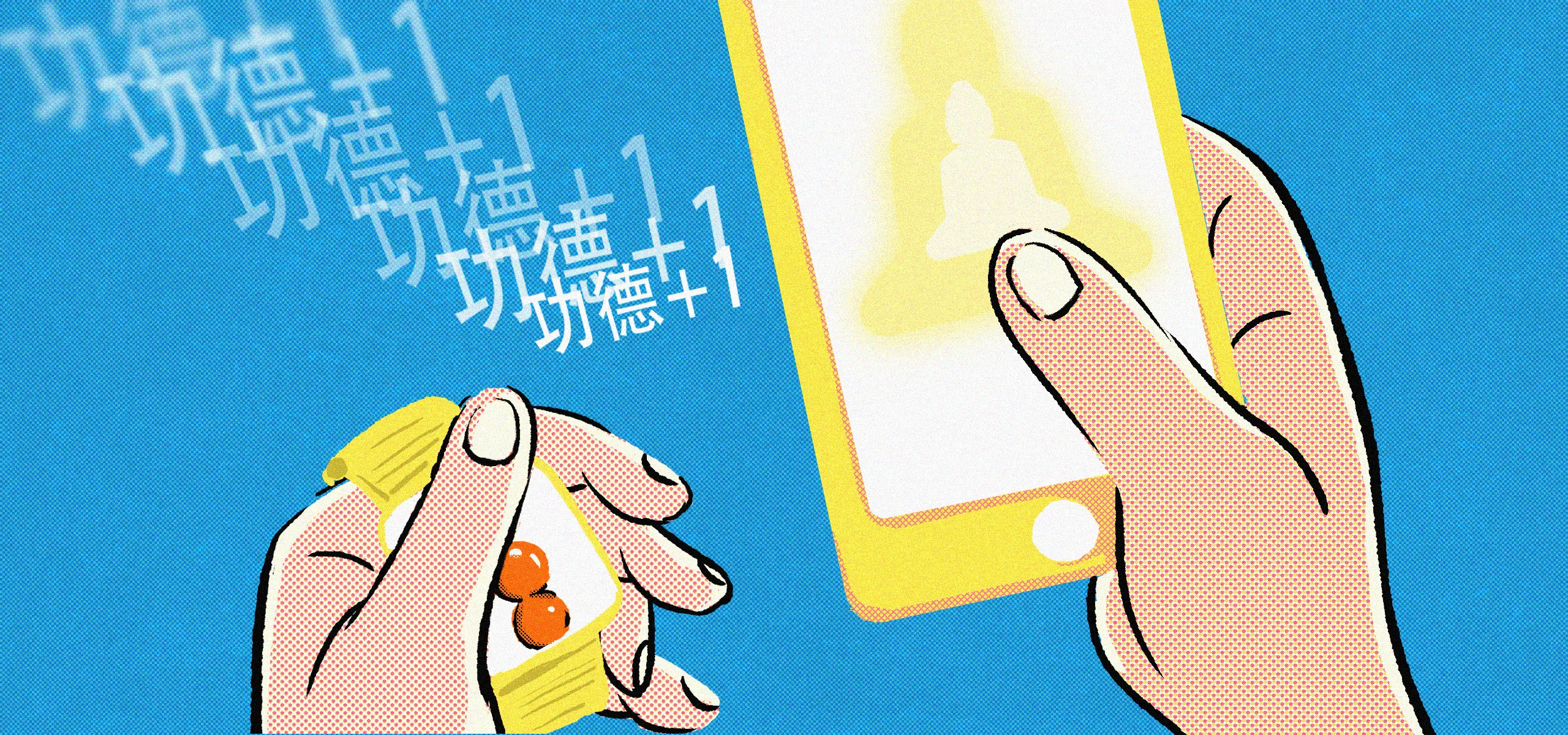China’s “Buddha-like youth” are visiting temples and praying to the gods—Gen Z style.
China’s “Buddha-like youths (佛系青年 fóxì qīngnián),” who advocate refusing societal pressures and forgoing ambition, have been around for a while. But now, a new wave of Gen Z spirituality has come to the Chinese internet, this time involving genuine Buddhist practices like praying and temple visits.
The past few months have seen a frenzy for “temple travel (寺庙游 sìmiàoyóu)” in China. Beijing’s Lama Temple has implemented visitor flow control measures, the Lingyin Temple in Hangzhou, Zhejiang province, has limited the amount of prayer beads visitors can purchase, and long queues have formed outside famous temples across the country.
Memes and online slang have followed. With so many visitors, even the gods are succumbing to modern pressures, as one joke goes online: “The most ‘Buddhist’ places have begun to become involuted. The Buddhas have to work overtime to get through visitors’ prayers (最佛系的地方也开始卷起来了,佛祖们不得不加班加点处理愿望清单 Zuì fóxì de dìfāng yě kāishǐ juǎn qǐlái le, fózǔmen bùdébù jiābān jiādiǎn chǔlǐ yuànwàng qīngdān).”
Meanwhile, many overworked and stressed youngsters now often joke that they are best served in their life and career by prayer: “Between work and progress, I choose to light incense (在上班和上进之间,我选择了上香 Zài shàngbān hé shàngjìn zhījiān, wǒ xuǎnzéle shàngxiāng).” Or, “Between seeking help from others and self-improvement, I choose to seek help from the Buddha (在求人和求己之间,我选择了求佛 Zài qiúrén hé qiújǐ zhījiān, wǒ xuǎnzéle qiúfó).”
Others have brought their new found spiritualism outside the office and into their leisure time. A common phrase online now goes: “It’s better to visit temples than go shopping, and it’s better to perform a religious ceremony than prepare for exams (逛街不如逛庙,做题不如作法 Guàngjiē bùrú guàng miào, zuòtí bùrú zuòfǎ).”
Before visiting a temple, Buddha-like youths peruse social media for “Buddha-worshiping guides (拜佛攻略 bàifó gōnglüè)“ that review venues, describe which gods offer what types of blessings, and explain how to use prayer beads.
One strategy, is to employ someone to do the work of temple-going for you. Some entrepreneurial souls offer to register for temple tickets, queue up, and light incense in the temple for those too lazy to go themselves (and with cash to pay for this service).
One smart phone app even lets users tap a “digital wooden fish (电子木鱼 diànzǐ mùyú),” referring to the Buddhist practice of using a stick to strike a hollow wooden block during recitations and prayer. On the digital version, users tap the virtual ”fish” on their phone screen to gain 功德 (gōngdé, merit or virtue).
But in-app merit isn’t enough to solve all one’s earthly troubles—and first among those worries is money: “Show no interest in matchmaking temples, and instead kneel long at halls to the God of Wealth (姻缘殿爱答不理,财神殿长跪不起 Yīnyuándiàn àidā bùlǐ, cáishéndiàn chǎngguì bùqǐ),” as one netizen writes online. To make sure the gods don’t mistakenly bestow their blessings on the wrong people, some temple-goers have begun taking their ID card along with them, and reciting the 18-digit code to the gods as they pray.
While these Gen Z ”Buddhists“ entrust their aspirations for material success to the power of the gods, others are content to seek only mental comfort from their busy lives: “I choose to shift the burden of stress onto the Buddha (把压力给到佛祖 Bǎ yālì gěidào fózǔ).”












